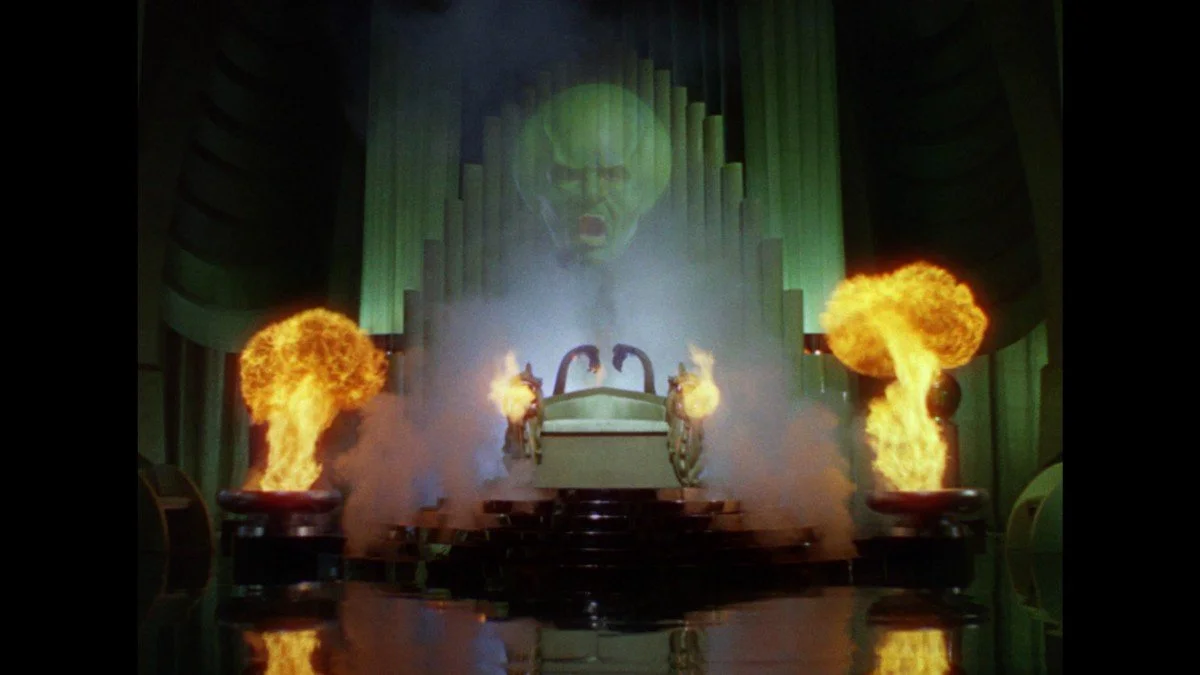Pivot!
Central banks have been raising interest rates to lower high prices resulting from the money they printed to create low interest loans to stimulate the economy during the covid lockdowns. This is causing financial hardship for people who rely on loans, which are becoming less affordable. For example, Credit Suisse may be near bankruptcy. These hardships are resulting in central banks pivoting to lowering interest rates. E.g. The Bank of England had to print a bunch of money to keep interest rates low so their public pension scheme didn’t crash. The Bank of Japan is keeping their rates low. The UN is asking for central banks to stop raising rates. Pivot!
The Federal Reserve and the European Central Bank have been raising interest rates to lower high prices resulting from the money they printed to create low interest loans to stimulate the economy during the covid lockdowns.[1]
Ann Saphir, writing for Reuters, notes,[2]
“The Fed has raised short-term borrowing costs faster this year than any time since the 1980s to take the heat out of the economy and ease price pressures.”
Again, according to Reuters,[3]
“ECB President Christine Lagarde said the ‘first destination’ in the rate hiking cycle will be the ‘neutral’ rate, which neither stimulates not slows growth.
‘We have return inflation to 2% in the medium term, and we will do what we have to do, which is to continue hiking interest rates in the next several meetings,’ she told a conference.”
However, the higher interest rates are causing loans to be unaffordable to borrowers who need the money. This is especially true in Europe which is facing energy shortages and high prices from their undeclared war against Russia. The Nord Stream II pipeline being damaged in apparent sabotage is not helping.[4]
Americans are also feeling the pinch, particularly in the housing market.
Via National Public Radio,[5]
“CHANG: That is because the interest rate for a 30-year fixed-rate mortgage in the U.S. has soared to nearly 7%. That's the highest since 2008. And as painful as this is for would-be buyers, sellers and builders, all of this is kind of by design. You see, the Federal Reserve is trying to bring inflation under control by raising the cost of borrowing. Fed Chairman Jerome Powell explained the policy and the rationale after the Fed issued its fifth rate hike in six months.
(SOUNDBITE OF ARCHIVED RECORDING)
JEROME POWELL: We've had a time of a red-hot housing market all over the country where, you know, famously, houses were selling at 10% above the ask before even seeing the house - that kind of thing. Housing prices were going up at an unsustainably fast level. So we probably in the housing market have to go through a correction.”
It is not just regular people who are having problems with debt and credit. The Swiss bank, Credit Suisse, has their credit default swaps (CDS), bets that the bank will default, trading at high prices last seen in the 2008 financial crisis.
Zerohedge notes on Monday Oct 3,[6]
“And CS credit risk has spiked to record highs this morning, topping 280bps at one point - basically disallowing the company from any investment banking business. This is higher than the bank's credit risk traded at the peak of the Lehman crisis...
While the credit default swap levels are still far from distressed and are part of a broad market selloff, they signify deteriorating perceptions of creditworthiness for the scandal-hit bank in the current environment. There is now a roughly 23% chance the bank defaults on its bonds within 5 years.”
On Wednesday, September 22, the Bank of England announced that they would begin raising interest rates. They published a summary of their policy. It states,[7]
“The Bank of England’s Monetary Policy Committee (MPC) sets monetary policy to meet the 2% inflation target, and in a way that helps to sustain growth and employment. At its meeting ending on 21 September 2022, the MPC voted to increase Bank Rate by 0.5 percentage points, to 2.25%. […] The Committee also voted unanimously to reduce the stock of purchased UK government bonds, financed by the issuance of central bank reserves, by £80 billion over the next twelve months, to a total of £758 billion, in line with the strategy set out in the minutes of the August MPC meeting.”
Only one week later, Wednesday, Sept 28, the Bank of England pivoted and began buying UK government bonds because the British pension system was invested in low interest rate UK government bonds that were collapsing in value as people preferred higher interest rates as a hedge against inflation. [8]
Per CNBC,[9]
“LONDON — The Bank of England told lawmakers that a number of pension funds were hours from collapse when it decided to intervene in the U.K. long-dated bond market last week.
The central bank’s Financial Policy Committee stepped in after a massive sell-off of U.K. government bonds — known as ‘gilts’ — following the new government’s fiscal policy announcements on Sept. 23.
The emergency measures included a two-week purchase program for long-dated bonds and the delay of the bank’s planned gilt sales, part of its unwinding of Covid pandemic-era stimulus.”
Zerohedge’s analysis states it thusly,[10]
“According to the FT, the ‘break’ in the bond market manifested itself in thousands of pension funds have faced urgent demands for additional cash from investment managers in recent days to meet margin calls, after the collapse in UK government bond prices blew a hole in strategies to protect them against inflation and interest-rate risks.”
The Bank of Japan (BOJ) never even began raising rates. On September 22, they sold US government bonds for the first time in 24 years to use the dollars to buy their currency, the Yen, in the market (making it more valuable vs the dollar) as they print Yen to keep interest rates low and stimulate the economy (making it less valuable vs the dollar).
Per Reuters,[11]
“TOKYO, Sept 30 (Reuters) - Japan spent up to a record 2.8 trillion yen ($19.7 billion) intervening in the foreign exchange market last week to prop up the yen, Ministry of Finance data showed on Friday, draining nearly 15% of funds it has readily available for intervention.
The figure was less than the 3.6 trillion yen estimated by Tokyo money market brokers for Japan's first dollar-selling, yen-buying intervention in 24 years to stem the currency's sharp weakening.”
This is putting pressure on the Federal Reserve to buy the US government bonds that the BOJ is selling or watch as interest rates rise further, putting more pressure on the US housing and bond market. That is because the Fed has been raising US interest rates by selling US government bonds themselves.[12][13]
“I think we are actually at a point of encouraging risk-taking, and that should give us pause. Investors really do understand now that we will be there to prevent serious losses. It is not that it is easy for them to make money but that they have every incentive to take more risk, and they are doing so. Meanwhile, we look like we are blowing a fixed-income duration bubble right across the credit spectrum that will result in big losses when rates come up down the road. You can almost say that that is our strategy.” -Jerome Powell, Chairman of the Federal Reserve, then member of the Board of Governors, Oct 2012 Federal Open Market Committee Meeting.
The Fed is stuck between a rock and a hard place. Either the Fed acts as the lender of last resort and the dollar becomes worth less and worthless, or it stops printing money, raises interest rates, dries up the supply of affordable loans, and causes defaults on a record scale.
“The wavelike movement affecting the economic system, the recurrence of periods of boom which are followed by periods of depression, is the unavoidable outcome of the attempts, repeated again and again, to lower the gross market rate of interest by means of credit expansion. There is no means of avoiding the final collapse of a boom brought about by credit expansion. The alternative is only whether the crisis should come sooner as the result of a voluntary abandonment of further credit expansion, or later as a final and total catastrophe of the currency system involved.” -Ludwig von Mises, Human Action, pg. 570.
Now, even the United Nations is asking for central banks to stop raising interest rates. According to the Wall Street Journal on October 3,[14]
“The Federal Reserve and other central banks risk pushing the global economy into recession followed by prolonged stagnation if they keep raising interest rates, a United Nations agency said Monday.
The warning comes amid growing unease about the haste with which the Fed and its counterparts are raising borrowing costs to contain surging inflation. India’s central bank Friday said that the global economy was facing a third major shock after the Covid-19 pandemic and Russia’s invasion of Ukraine, in the form of aggressive rate increases by central banks in rich countries.”
Central banks have been raising interest rates to lower prices resulting from the money they printed to stimulate the economy during the covid lockdowns. This is causing financial hardship for people who rely on loans, which are becoming less affordable. For example, Credit Suisse may be near bankruptcy. These hardships are resulting in central banks pivoting to lowering interest rates. E.g. The Bank of England had to print a bunch of money to keep interest rates low so their public pension scheme didn’t crash. The Bank of Japan is keeping their rates low. The UN is asking for central banks to stop raising rates. Pivot!
[5]https://www.npr.org/2022/10/06/1127308139/mortgage-rates-are-up-sales-of-homes-are-down
[7]https://www.bankofengland.co.uk/monetary-policy-summary-and-minutes/2022/september-2022
[12]https://www.hamiltonmobley.com/blog/turning-japanese
[13]https://www.hamiltonmobley.com/blog/printing-money-lowers-interest-rates


